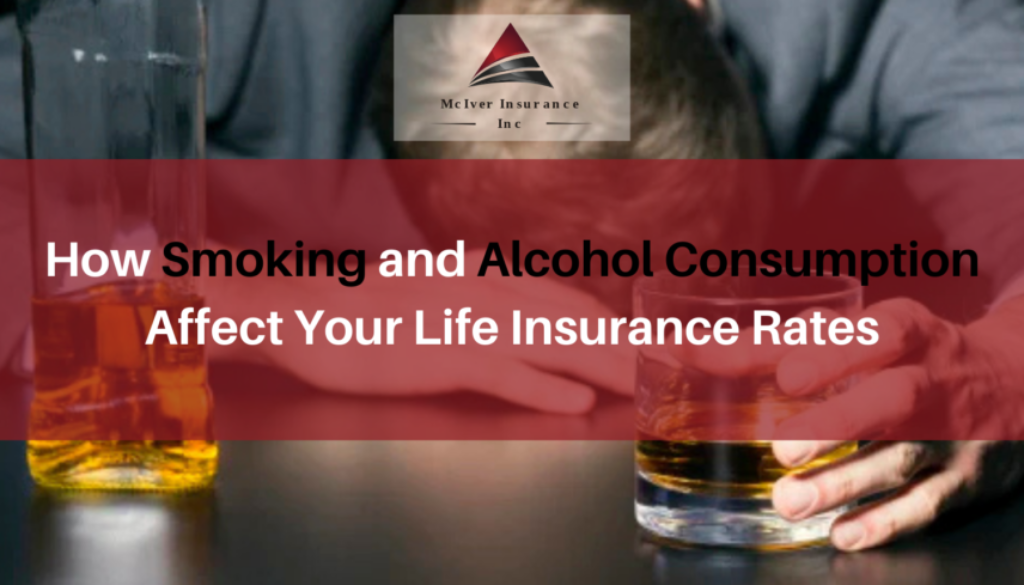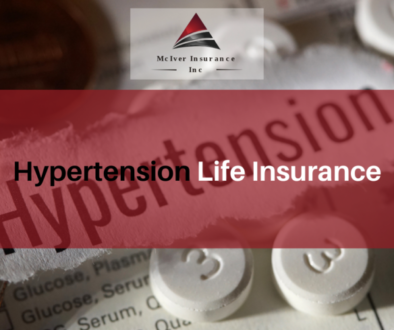How Smoking and Alcohol Consumption Affect Your Life Insurance Rates
Why is life insurance so much more expensive for smokers or those who drink heavily?
The answer lies in the underwriting process.
When you apply for life insurance, insurance providers assess your health risks based on lifestyle choices, including smoking and alcohol consumption.
These habits are proven to increase the likelihood of serious health issues, which means higher premiums for those who partake.
But how much of an increase in premiums are we looking at? Also, is there a way to reduce the premium cost if you quit smoking or drinking? And what happens if you don’t disclose you are a smoker or a drinker?
For answers to these questions and more, read on!
Table of Contents
How Smoking Impacts Life Insurance Rates
While smoking was considered “cool” and “harmless” in the early 20th century, that time has passed.
According to the World Health Organization, tobacco kills up to 50% of its consumers if they don’t quit in time.
As such, smokers pay significantly more for life insurance than non-smokers.
Smoking Habits
Insurers look at how much and how often you smoke.
Whether it’s a daily pack or the occasional cigarette, you’ll be categorized as a smoker during underwriting. Even vaping or using nicotine patches can sometimes count.
Health Risks
Smoking is linked to a host of health problems, from lung cancer to heart disease.
These risks lead to a higher likelihood of claims, which is why insurers raise premiums for smokers.
Comparison of Premiums
The numbers are stark: a 40-year-old non-smoker in Nova Scotia might pay $50/month for a term life insurance policy, while a smoker could pay over $120/month for the same coverage.
Over time, that difference adds up to thousands of dollars.
How Alcohol Impacts Life Insurance Rates
If you are an occasional drinker your premiums won’t be impacted as much as if you were an occasional smoker.
However, if you have a history of alcoholism, this can greatly impact the underwriting process. If alcohol consumption is heavy, frequent, or considered “risky” it can significantly increase life insurance rates.
For insurers, “risky drinking” often means consuming more than 3-4 drinks a day or binge drinking which can cause liver disease, heart problems, and mental health issues.
These health risks translate to higher premiums.
Moderate drinkers may also face higher premiums if their medical history raises concerns.
During the life insurance application process, you will be asked about your drinking habits and require medical tests that check for liver and heart damage.
The Impact of Smoking & Drinking on Insurance Costs
When both smoking and heavy drinking are part of your lifestyle, the premium quotes on life insurance can often be astronomical.
The health risks of smoking and drinking don’t just add up—they multiply. The chances of heart disease, cancer, and other life-threatening conditions skyrocket when these habits are combined.
To compensate for the added risk insurers often double or triple premiums for individuals with both habits.
In some cases, policies may even exclude coverage for conditions caused by smoking or drinking.
So, for example, if you are a smoker and heavy drinker not only will you pay higher premiums but there may be an exclusion in your policy that prevents your beneficiaries from being able to make a death benefit claim if you were to pass away as a result of lung cancer, liver failure, or other related illnesses.
The Underwriting Process for Smokers and Heavy Drinkers
Here is a breakdown of the underwriting process that insurers use to evaluate the risks posed by smoking and alcohol consumption.
Medical Evaluations
If you are a smoker or heavy drinker expect to undergo a medical exam, which might include blood and urine tests.
These tests can reveal nicotine use or elevated liver enzymes linked to alcohol.
Premium Calculation Methods
Insurers use actuarial tables to determine how your lifestyle affects your life expectancy. The more risks you pose, the higher your premium.
Even if you’re young, smoking or drinking heavily can make your premiums resemble those of someone twice your age.
Financial and Health Implications for Policyholders
The costs of smoking and drinking go beyond just higher premiums—they also affect your overall financial and physical well-being.
The cost of higher premiums is often nothing compared to what you are actually spending on cigarettes, alcohol, and healthcare.
By quitting these unhealthy habits you can save a lot of money, improve your health, and possibly increase your lifespan.
Qualifying for Lower Premiums
To qualify for lower premiums you will need to quit smoking and/or drinking for at least 12 months.
Once a year has passed you can sign a declaration stating you have quit and undergo a medical test to prove you are nicotine and alcohol-free.
The longer you quit, the more favorable your life insurance rates become.
After three years, your insurance rates can be as low as that of an individual who has never smoked or drank in their lifetime.
Legal and Ethical Considerations
Lying during the application process is only going to result in a denied claim.
When applying for life insurance transparency, full disclosure, and honesty are key.
There is no point paying premiums all your life only for the claim to be denied due to an unstated lifestyle choice.
The same is the case for insurers.
In Canada, insurers must adhere to laws that prevent discrimination while fairly assessing risks. They are responsible for treating all applicants fairly ensuring no one is overcharged or unfairly excluded.
While they’re allowed to charge higher premiums for high-risk lifestyles, this has to be based on clear evidence.
Get Insured Today by Nova Scotia’s most Trusted Life Insurance Broker
At McIver Insurance Inc., we understand that lifestyle choices can make life insurance more expensive, but that doesn’t mean you shouldn’t opt for a policy.
Quitting smoking, drinking responsibly, and maintaining a healthy lifestyle can go a long way toward lowering your premiums and our expert guidance can help you get there.
For personalized advice and competitive rates in Nova Scotia, call today!
FAQ Section
Q1) How does smoking cessation affect my life insurance rates?
If you quit smoking and remain smoke-free for at least a year, your premiums will lower. After three years, you may qualify for significantly lower non-smoker rates.
Q2) Can occasional drinking affect my life insurance premiums?
Occasional drinking typically doesn’t impact premiums, but excessive or binge drinking might.
Q3) What are the potential benefits of disclosing my smoking and drinking habits during the insurance application process?
Honesty ensures your policy won’t be voided later. Plus, many insurers offer options to re-evaluate premiums if you improve your habits.
Q4) Are there insurance providers that specialize in policies for individuals with high-risk lifestyles?
Yes, some providers focus on offering coverage tailored to smokers and heavy drinkers, but premiums will still reflect the associated risks.



